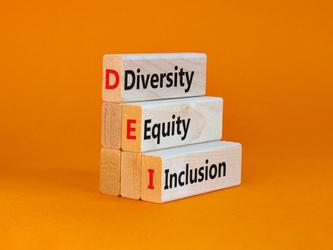Advertising needs greater diversity, finds industry census
The census, which took place between 10th and 22nd March and received 16,016 responses, found that 1% of people in executive-level positions were black. Black people make up 3% of the British population.
Disabled people were also underrepresented in advertising with 9% of the workforce, compared with 20% of the working age population in the UK.
The census found 38% of respondents felt able to report discrimination against others in the industry, but this fell to 26% when reporting personal discrimination. One in eight women ( 12%) said they had experienced sexual discrimination.
The All in report based on the census findings was published by the Inclusion Working Group on Thursday 10th June. The working group was set up by the Advertising Association, Institute of Practitioners in Advertising (IPA) and advertising industry body Isba last year.
Among the other major findings in the census was that ethnic minorities made up 16% of the industry, compared to 12% of the UK working population. This rose to 24% of 18 to 24-year-olds working in advertising.
More than half ( 53%) of women who took parental leave said they felt it disadvantaged their careers, while there was a 10% pay gap at executive level between men and women.
Advertising professionals were far more likely to have attended a fee-paying school at 20%, in contrast to a national average of 8%.
People whose parents have professional backgrounds were also overrepresented in the industry at 64%, compared with a 37% national average.
Almost a third ( 31%) of respondents said they felt stressed or anxious.
The All In report set out three strategies to make quick progress on the diversity of the advertising industry
- Improving the experience and representation of Black talent through the rapid adoption of the newly-launched BRiM framework.
- An immediate audit of websites across the industry to ensure full accessibility online.
- The uptake of the Social Mobility Commission Toolkit for the Creative Industries to improve working class representation.
All In Summit
Speaking at the All In Summit on Thursday 10th June, Caroline Dinenage, minister for digital and culture at the Department for Digital, Media, Culture and Sport, told attendees: "This is a great opportunity to step back and look at the individuals who make up this industry.
“It is important that anyone working in creative industries feels included and empowered."
In a discussion on how to improve the representation of people from ethnic minorities in the advertising industry, Zaid Al-Qassab, chief marketing officer and inclusion and diversity director at Channel 4, said that Channel 4 had managed to increase the diversity of its programming, recruitment and advertising by altering its policies.
“If you’re wondering if your advertising is representative, call a review, sit down in a room, look at all your advertising for the year and measure whether it was representative or not. It is not hard – it will take you half a day, and will tell you where your problems are,” he said.
“It is proven that having more diverse people, diverse thinking and understanding your diverse target audience better drives better business results. We shouldn’t be ashamed at saying that because that is a way of convincing leaders and companies to do this.”
Julian Douglas, president of the IPA, said: “There needs to be an acceleration of understanding that it is not just about doing the right thing but about better outcomes and business.
“There are massive unrealised opportunities out there in terms of the audiences you want to be contacting and engaging with, and untapped potential.”
Dean Aragon, chief executive of Shell Brands International, added: “We need to shift the conversation from catching people doing the wrong things or insufficient things to coaching people to do the right things and move in the right direction. I prefer positive reinforcement – this constrictive clarion call to do something and take the next step.”
There is also much the industry needs to do to make it more inclusive for disabled people. Samantha Renke, broadcaster and disability campaigner, told the conference that discrimination in the industry and society needed to be recognised.
“We don’t as a society recognise we have systemic ableism,” she said. “We need to be upfront and say that disabled people are marginalised across the board, and Covid-19 has highlighted this.”
James Hillhouse, co-founder of Commercial Break, said the overwhelmingly middle-class culture of advertising needed to change.
“If we think this is just about recruitment, we have got this terribly wrong,” he explained. “I have seen a lot of workplaces who have got a lot of different types of people in who are all from that same middle-class background.
“If you are not familiar with that world and the codes of the middle class, which are hard to see and harder to navigate, you immediately feel an ‘other’.”
Andy Nairn, founding partner at Lucky General, said working class representation needed to be addressed.
“We are blocking out 39% of the population,” he stated. “That is wrong on so many levels. It is wrong ethically, where people don’t feel they can bring their full selves into work. It is also wrong because class intersects so many other issues in diversity, especially race, so there is a double-whammy going on there.
“As the leader of an agency it is the stupidest approach ever. We are excluding literally half the population.”

We hope you enjoyed this article.
Research Live is published by MRS.
The Market Research Society (MRS) exists to promote and protect the research sector, showcasing how research delivers impact for businesses and government.
Members of MRS enjoy many benefits including tailoured policy guidance, discounts on training and conferences, and access to member-only content.
For example, there's an archive of winning case studies from over a decade of MRS Awards.
Find out more about the benefits of joining MRS here.














0 Comments